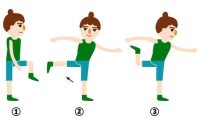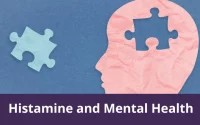Chrononutrition: “When you eat is as important as what you eat.”
The way we eat is key to health and disease. But it’s not just about what and how much we eat, but also about when. In recent years, science has focused on unraveling the phenomenon of chrononutrition, which explains the relationship between temporal eating patterns, circadian rhythms, and metabolic health. Some research has shed light on the importance of synchronizing meal times with our circadian rhythms, the internal 24-hour biological clock that regulates physiological functions. Scientists have discovered that skipping breakfast, for example, is associated with a higher risk of obesity, and late-night eating is also linked to weight gain.
Humans have a central clock that sets the body’s time. It’s barely visible, just a tiny ball about a millimeter in size located in the hypothalamus, but these tiny molecular devices can tell the rest of the body what time it is and, along with the independent small clocks in tissues, anticipate and prepare cells for what’s to come, like eating at noon or going to sleep at night. “Our body has schedules, and this central clock is not isolated but synchronized with the outside world, mainly through light and darkness, but also with changes between eating and fasting or with periods of activity and rest,” explains Marta Garaulet, professor of Physiology at the University of Murcia and expert in chrononutrition.
Respecting circadian rhythms and all those biological changes that follow a 24-hour cycle is fundamental to health. Such that a disruption in these biorhythms can alter basic vital functions, notes the scientist: “We are diurnal animals, we are meant to sleep at night and not eat while sleeping. We are meant to eat and move during the day. So, if your body perceives that there is light or eating at night, it is receiving contradictory information.”
Through the central clock, peripheral clocks (which are in organs and tissues), lifestyle habits, behaviors, and the environment, internal biorhythms are regulated. “A person who is in tune with their chronobiology is one who has all their clocks synchronized and in line with changes in light and darkness,” clarifies Garaulet. However, there can be synchronization failures in the central clock, in peripheral ones, or in behaviors; and that can create chronodisruptions that, in the long run, says the scientist, “are related to diseases such as obesity, cancer, depression, or metabolic disorders. This is clearly seen in shift workers or night employees, who are an example of people who have misaligned their behaviors with their internal clock.”
Mealtime, a synchronizer
Mealtime, like light, is a clear modulator of internal clocks, asserts Garaulet. “Mealtime is a synchronizer of the peripheral clocks of organs related to food, such as the liver and pancreas. If you eat at irregular times, not all organs that prepare to receive food react well: because receiving food is a significant impact on the body and it has to prepare,” says the specialist, who delves into this explanation: “It’s like if 100 people come to eat at your house and don’t notify you. Anticipation that food is about to enter the body helps it to respond well, and when that doesn’t happen, there is a metabolic disturbance.”
The body is programmed in a certain way, and organs function accordingly. That is, differently during the 24 hours of the day: they do not respond the same if they have to work at a time they were not scheduled for. The pancreas, for example, is lazier at night and more active during the day. “Having a late dinner has a very clear effect: it coincides with the secretion of melatonin, which is the hormone that prepares you for sleep, with insulin, which is the hormone that helps distribute food. But, in the presence of melatonin, the secretion of insulin is reduced, and sugar and carbohydrate tolerance are worse,” points out the chronobiologist. She and her team discovered a decade ago that eating late can influence the ability to lose weight when dieting.
Lidia Daimiel, a researcher at the Madrid Institute for Advanced Studies (IMDEA food) and the Center for Research in Obesity and Nutrition Network (Ciberobn), insists that “the body is not equally prepared at any time of the day to manage food.” That is why when you eat is a determining factor in an individual’s chronobiology, she explains: “When you eat is as important as what you eat. If what you eat is good and healthy, but the timing is not right, you are not getting the benefit that meal could provide to the same extent.”
Quality sleep and fasting
In practice, the impact on health can be extensive. “Once the schedule is disrupted, it can affect everything,” summarizes Garaulet. An editorial in Frontiers of Nutrition compiled a few months ago that chronodisruptive eating behaviors “have been implicated in many health disorders, including sleep disorders, cardiometabolic risk, unbalanced energy mobilization, body temperature dysregulation, weight gain, and psychosocial discomfort,” among others.
Another scientific review reminded in 2020 that “experimental and clinical studies have consistently shown that disrupting circadian rhythms can promote the development and progression of digestive pathologies, such as irritable bowel syndrome and inflammatory bowel diseases.” Likewise, a mouse study published in 2023 in the journal Science suggested that synchronizing eating with the circadian clock mitigates obesity: animals that ate during active phases of their circadian cycle burned more calories and reduced the risk of developing this condition.
Disruption in natural meal times also impacts sleep. “Sleep is an external synchronizer, like mealtime, and sets your clocks; but at the same time, it is also a consequence of your internal clock and there can be disruptions, such as eating late, which can disrupt sleep because you cannot properly digest,” adds Garaulet.
In the context of chrononutrition, the concept of fasting and its influence on modulating internal clocks is also emerging. “Time-restricted eating, which involves reducing the number of hours of eating, is under study. What we know is that when fasting is done early, it works better than if we move it to the afternoon and delay breakfast,” explains Daimiel. The scientist argues that fasting helps to “reset” the body and “helps to initiate epigenetic mechanisms that help control nutrient metabolism.”
But there are still many unanswered questions, she points out, and the scientific community is not clear, for example, “whether fasting [limiting the time of intake] is better than caloric restriction [reducing the number of calories ingested].” Furthermore, she adds, since there are many different fasting protocols, “it is also unknown which one is the best because it is unclear how each one affects circadian rhythms.”
No magic formulas
Scientists warn that there are no magic recipes or foolproof recommendations about the right time for meals. Garaulet asserts that there are over 300 identified genes that define each individual’s predisposition to be more morning or evening-oriented: “Some people, if they dine at midnight, since their biological night starts at 1 in the morning, it doesn’t affect them. Each individual has different biological nights and the time they eat will affect them based on their internal chronotype.” For this reason, Daimiel emphasizes that “it’s very difficult to give global advice. But there are two general messages: don’t eat late and don’t dine very close to bedtime,” concludes Daimiel.
Chrononutrition, however, is a growing science and there are still unresolved questions. For example, Garaulet points out: “It’s not clear nor are there studies confirming that changing meal times improves the prognosis of obesity.” Daimiel, on the other hand, points out another key question to be resolved: “There is quite a bit of knowledge about how the circadian rhythm is controlled, but the difficulty now is learning how to modulate this to our metabolic convenience. The task is to see how, through nutrition, we align the clocks: what dietary protocols can be applied to synchronize our clocks.”


